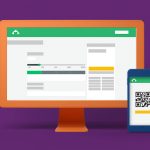Whether you’re collecting feedback on employee engagement, company events, or even office snack preferences, it’s tough finding new ways to reach employees. At SurveyMonkey, we use our own product to hear from our employees. We believe it’s important to make eliciting feedback easy—and fun—to help build a better workplace.
Here are some examples of ways we use surveys to engage our own employees:
1) Post surveys in public channels
If you’re looking for anonymous feedback from employees, consider posting your survey via weblink on a company channel or group chat. Doing so prevents you from clogging employees’ inboxes, while allowing you to reach them where they interact the most.
These surveys can ask for feedback on anything—from what employees think of a recent all-hands meeting to what snacks they would like to see in the office, or what fitness classes might they be interested in. While we don’t do it ourselves, it can be effective to post pre-event surveys in group chats, like Gchat or Facebook Messenger. Group chats are a great place to ask employees where they would like to have the next holiday party, team offsite, or hack-a-thon.
We love posting in public channels for informal surveys, but we recommend sending any official HR surveys via individual emails.
2) Use QR codes to engage in real time
How do you engage employees in real time? It’s easy—just use a QR code to share a survey! We like to engage our employees during presentations, and we use QR codes in slide decks to get our team to participate.
QR codes are a great way to send people to short quizzes testing product knowledge, or for more fun things like icebreakers, polls, and trivia. Our employees love being able to collect survey responses quickly, then present back to the team—during the same presentation!
Because QR codes are highly interactive, they’re great to put up on monitors around the office for ongoing surveys. Post a QR code on a monitor in your lobby to ask guests how their visit to your office was. Or, put QR codes closer to cafeterias, locker rooms, and restrooms to ask employees to report facilities issues.
3) Send surveys via email for official communications
Posting surveys in company channels and using QR codes are engaging, but we still use email to deliver formal HR surveys. Email listservs give you more control over who receives your survey. For example, you can ensure the entire company can access your survey, or send one to specific departments. Sending surveys via email is also much easier for tracking and it’s great for re-engaging employees.
We use this method to send our Diversity & Inclusion survey to learn if our employees feel a sense of belonging working at SurveyMonkey. This survey helps us spot trends, finds areas to offer guidance, and contributes to employee retention—so getting an accurate read on the data is important. Sending the D&I survey via email ensures everyone in the company has the opportunity to take the survey, not just people that happen to see a link posted in a company channel.
We also email new hires a survey to check in during their first few months at SurveyMonkey. We embed the first question in the email to get them excited about taking it.
SurveyMonkey’s email collector integrates with your contacts so you can organize respondents into groups such as “marketing team” or “engineering.” Once the results are in and you’re analyzing your survey, you can filter by group—making it easy to gauge and compare sentiment across various teams in your organization.
And if you want to get even richer data from your emailed surveys, paid plans allow you to see how many people opened the email and clicked through your survey. This can help you determine how to engage employees in the future—and how often.
Try engaging your employees in a new way, the results may surprise you. Take it from us—we love sending surveys!
How are you reaching employees with surveys? Have an interesting story you want to share? Let us know at stories@surveymonkey.com.



